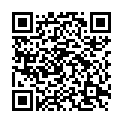|
|
|
| Module code: DFMEES-106 |
|
|
2VU (2 hours per week) |
|
2 |
| Semester: 1 |
| Mandatory course: yes |
Language of instruction:
German |
Assessment:
Project work
[updated 01.07.2021]
|
DFMEES-106 (P610-0130) Electrical Engineering - Renewable Energy and System Technology, Master, ASPO 01.10.2019
, semester 1, mandatory course
|
30 class hours (= 22.5 clock hours) over a 15-week period.
The total student study time is 60 hours (equivalent to 2 ECTS credits).
There are therefore 37.5 hours available for class preparation and follow-up work and exam preparation.
|
Recommended prerequisites (modules):
None.
|
Recommended as prerequisite for:
|
Module coordinator:
Prof. Dr. Xiaoying Wang |
Lecturer:
Prof. Dr. Xiaoying Wang
[updated 10.09.2021]
|
Learning outcomes:
After successfully completing this module, students will have basic theoretical and practical knowledge of EMC.
They will be familiar with the basic physical and electrical electromagnetic interference (EMI) models and the countermeasures used to prevent EMI in the design phase but also in finished devices.
They will be familiar with the electromagnetic interference simulations used to measure devices and will have initial practical experience with EMC measurements.
They will be familiar with the current European and international legislation and standards in EMC and related areas and will be able to apply them to product design and development.
During their project work, students will gain initial knowledge in their field of specialization and be able to put this knowledge into practice.
This wil allow students to acquire further knowledge in their field of specialization and apply it later in their career.
1.
[updated 01.07.2021]
|
Module content:
Introduction to EMC
2. Description of EMC
3. Signal spectra
4. EMC environment: sources and sinks
5. Coupling methods
6. General EMC countermeasures
7. EMC in the development of devices and installation technology
8. European law, EU directives, product liability and warranties
9. EMC - An overview of measurement methods
10. Biological effects of electromagnetic fields
[updated 01.07.2021]
|
Teaching methods/Media:
Blackboard, overhead projector, video projector, lecture notes
[updated 01.07.2021]
|
Recommended or required reading:
A. Schwab: Elektromagnetische Verträglichkeit, Springer Verlag
E. Habiger: Elektromagnetische Verträglichkeit, Hüthig Verlag
E. Habiger u.a.: Elektromagnetische Verträglichkeit, Verlag Technik, Berlin, München
T. Williams: EMC für Product Designers, B.H. Newnes
R. Perez: Handbook of Electromagnetic Compatibility, Academic Press
H. Meyer, Hrsg.: Elektromagnetische Verträglichkeit von Automatisierungssystemen, VDEVerlag
W. Rudolph: EMV-Fibel für Elektroinstallateure und Planer, VDE-Verlag
W. Rudolph, O. Winter: EMV nach VDE 0100, VDE-Verlag
M. Grapentin: EMV in der Gebäudeinstallation, Verlag Technik
J. Goedbloed: Elektromagnetische Verträglichkeit, Pflaum Verlag
G. Durcansky: EMV - gerechtes Gerätedesign, Franzisí Verlag
P. Kodali: Engineering Electromagnetic Compatibility, IEEE Press
C. Paul: Introduction to Electromagnetic Compatibility, Wiley & Sons
P. Chatterton, M.Houlden: EMC, Electromagnetic Theory for Practical Design, Wiley
[updated 01.07.2021]
|

